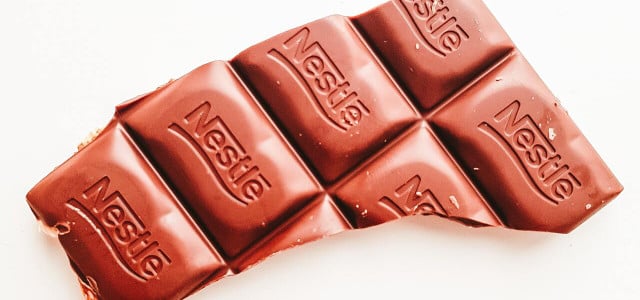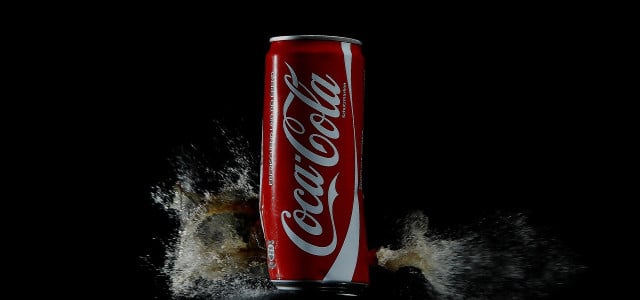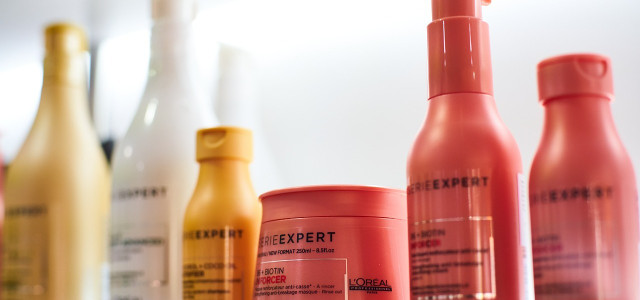Nestlé products are among the most maligned by ethically conscious consumers. But why? We'll take a quick look at what controversies give Nestlé such a bad rap.
Nestlé, producer of countless products and sub-brands, from Nescafé and Milo to Abuelita syrup and Purina dog foods, as well as scores of iconic chocolate bars and candies, is the world’s largest food and beverage company.
It’s a giant conglomerate with fingers in many pies (or should we say Hot Pockets — Nestlé owns those too), including a 23 percent stake in L’Oreal, the world’s largest cosmetics company. Nestlé products are everywhere. However, although their products are ubiquitous in almost every cupboard, there are a few things Nestlé would prefer to keep behind closed doors.
Just how did Nestlé come to be one of the largest conglomerations the world has ever seen? Kit Kats may be delicious, but they alone could not secure Nestlé’s astronomical fate. We’ll explain some of the key controversies that have helped to boost the company to its current status while simultaneously putting them in the bad books of ethical consumers globally for over half a century.
1. The Baby Formula Scandal

(Foto: Photo: CC0 Public Domain / Unsplash - Rainier Ridao)
Since the company’s conception in 1867, Nestlé has convinced people its baby formula is better for infants than breast milk — a claim that is categorically false. They placed particular focus on marketing in developing countries in Africa, Latin America and Asia during the 1970s, sending saleswomen dressed as nurses to convince the mothers that their formula was better for their children than their own breast milk.
Many women, struggling to afford the expensive milk touted as better than what their bodies produced for free, diluted the formula with (often unsanitary) water, further reducing its nutritional value. Millions of infants died. Many more grew up nutritionally deficient, dramatically impacting the health and lifespan of swathes of the developing world — one of the worst scandals a corporation has ever publicly faced. Meanwhile, the company pocketed billions in revenue from baby formula and continues to do so.
It’s worth pointing out that some women cannot breastfeed, and baby formula, when prepared correctly, is an adequate substitute for breast milk. However, Nestlé exploited women by forcefully deceiving millions regarding its superiority over breast milk. It failed to educate people about proper preparation and even paid off doctors and hospitals to bolster its bogus claims.
Today, the misconception lives on, and baby formula remains a booming market. Despite global outrage now lasting half a century, as well as tons of new research into the harm caused by Nestlé baby formula and other Nestlé products, infant formula remains an $11.5-billion market — and growing.
2. Child Slave Labor
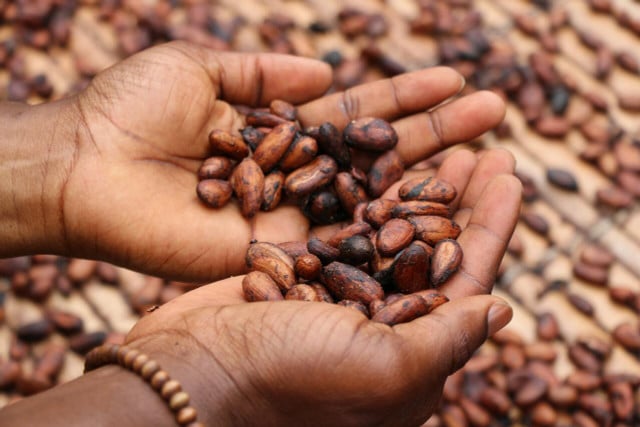


(Foto: Photo: CC0 Public Domain / Unsplash - Etty Fidele)
Yep, you read that right. As recently as 2021, Nestlé was sued by eight former child slaves for “aiding and abetting the illegal enslavement of thousands of children on cocoa farms in their supply chains.” Alongside Cargill, Barry Callebaut, Mars, Olam, Hershey and Mondelēz, Nestlé is accused in a class action lawsuit of allowing forced labor on their Ivory Coast cocoa plantations.
These claims are horrifying. As with many of the controversies we’ll describe, Nestlé is accused of trying to cover up its misdeeds by actively misleading the public — promising to phase out child labor by firstly 2005, then 2020…
Litigation is ongoing.
3. Exploiting Drought-Ridden Areas
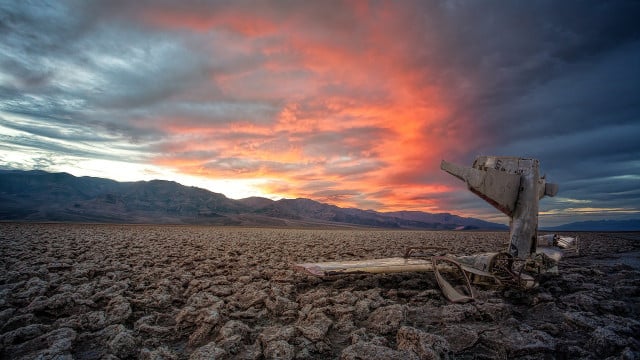


(Foto: CC0 / Pixabay / jplenio)
Despite the crippling droughts and wildfires that annually ravage California, Nestlé’s CEO proudly continues to exploit the state’s water sources. The exact amount Nestlé pumps from the San Bernardino National Forest is unclear — but estimates put the figure at around a billion gallons annually — since 1988. Nestlé has, for some inexplicable reason, been bottling water for its Arrowhead water brand from this public and vital water source since 1984.
Nestlé being Nestlé, this has put them back a measly $524 a year, despite its permit running out in 1988. Petitions have come and gone to get the company to pay for the water it takes or, at the very least, to renew its license. However, all attempts have come to nothing.
4. League-Topping Plastic Pollution
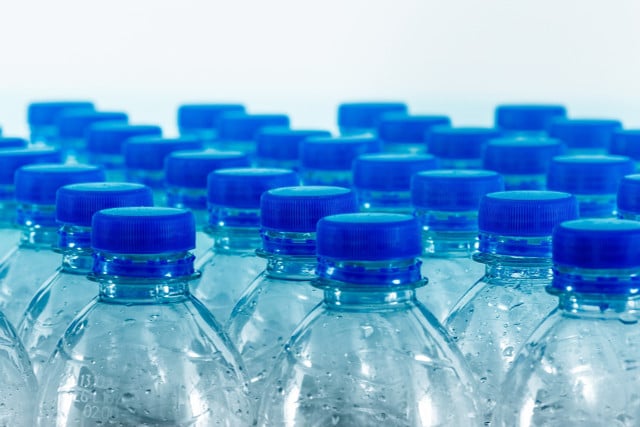


(Foto: CC0 / Pixabay / fotoblend)
A bottle of Nestlé’s water is essentially instant plastic pollution. The water, which springs naturally from the Earth, is packaged and sold to you in a bottle that you will use once before it exists in our ecosystem for hundreds (if not thousands) of years.
In addition to being the largest food and beverage company globally, Nestlé is consistently named one of the worst plastic polluters. Much of its single-use plastic packaging is unrecyclable and turns into ocean pollution or winds up in parks, littered through cities and in water supplies.
True to form, and despite insurmountable physical evidence to the contrary, Nestlé’s website touts “a long-standing commitment to sustainability” (September 2022). They proudly state that by 2025, 100 percent of their packaging will be reusable or recyclable. However, Greenpeace claims that rather than focusing on reducing or eliminating the waste produced by their products, they will instead focus on burning their plastic waste. In doing so, they will produce toxic pollution that does significant harm to humans and wildlife alike.
Great job, Nestlé!
5. Contaminating Groundwater
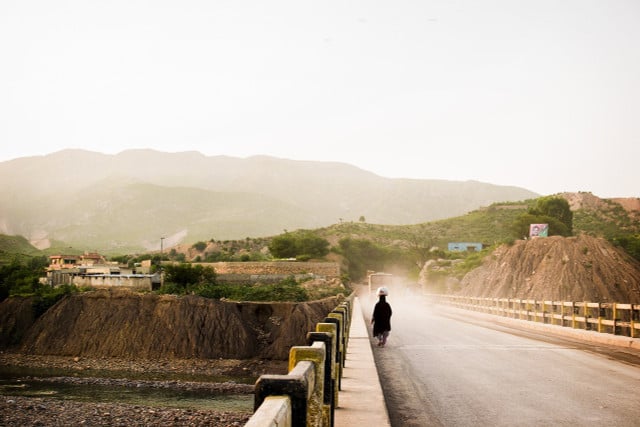


(Foto: CC0 / Pixabay / Samina_Kousar)
Nestlé is also blamed for exploiting groundwater in areas where the public needs it the most — and selling it for profit. Pakistan, which was recently reclassified from water “stressed” to water “scarce,” has seen water sources in areas where Nestlé began sourcing its Pure Life water sink hundreds of feet since production began. Furthermore, the remaining water in these areas is often toxic.
And, once again, audits discovered that the company was exploiting natural water sources without paying for them. What’s worse, it wastes the pilfered water; 43 percent of the total 4.4 billion liters taken in 2018 was completely wasted — that’s 1.9 billion liters — despite their management’s claims that only 15 percent was wasted.
Want to learn more about how to keep your water safe to drink? Read 10 Causes of Water Pollution & What You Can Do.
Nestlé Controversy: Can You Avoid It?
Scandal. Deceit. Cover-up. This is Nestlé’s secret formula — admittedly one that has resulted in dizzying success. It’s hard to overstate just how imaginative and diverse the methods for causing harm have been: poisoning babies, enslaving children, stealing necessary components for sustainable life and poisoning the remains, and numerous scandals we haven’t covered, like murdering trade union leaders and illegal price fixing.
Nestlé is “one death ray away from cinematic levels of evil.”
Our advice: if you haven’t already, cut and run. There are thousands of worthy companies in every country that try to do good for the world and produce better-tasting, better-made products. They will benefit directly from your purchasing power.
If you’re looking to buy more sustainably, here are some basic tips to get you started:
- Shop local
- Shop independent
- Try making things yourself
- Buy reusable water bottles
- Look at labels carefully to ensure the product is not secretly from one of Nestlé’s brands
Check out our guide to conscious consumerism for more advice and information.
Read more:
- Where Does Chocolate Come From? Origins Explained
- Neither Nestlé nor Monsanto: This Is the Worst Company in the World
- Fair Trade: What It Means and Which Certifications You Can Trust
Do you like this post?






